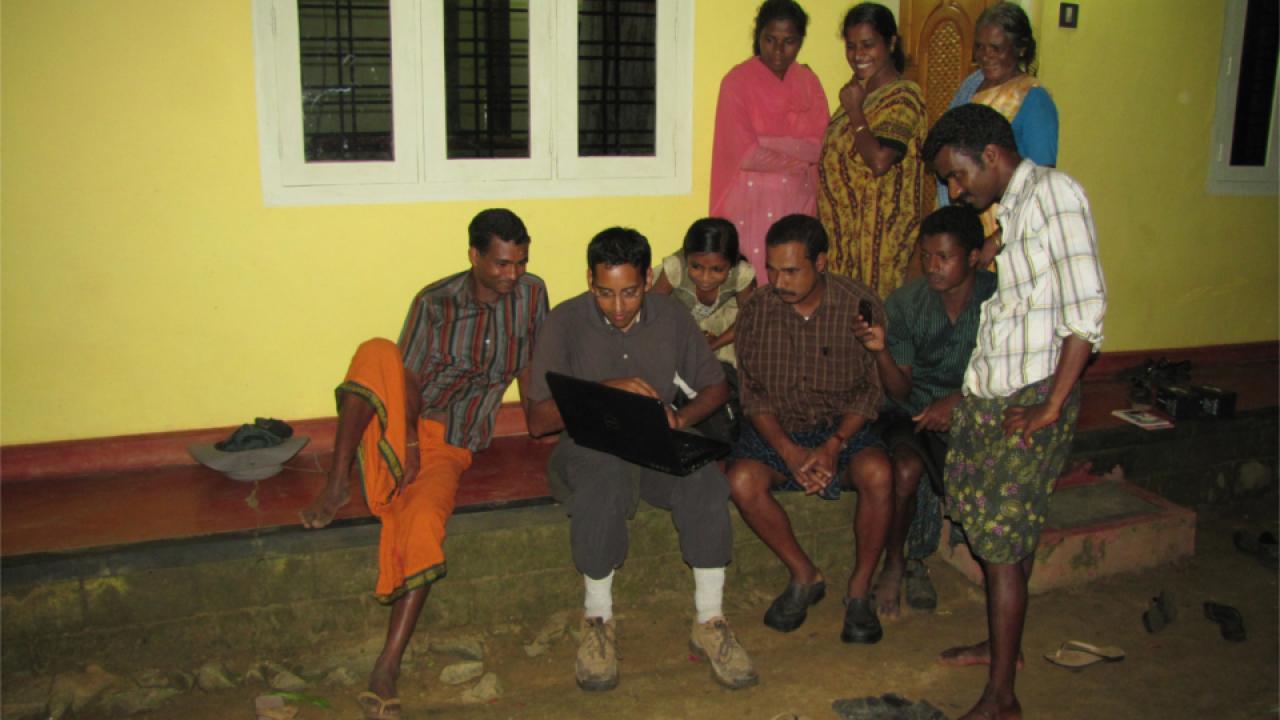
Vivek Thuppil
What matters to Vivek?
Quick Summary
- Freedom to conduct research that directly supports society.
We don't normally think of elephants as being a threat to human life and well-being. But in southern India, elephants can be just that. Vivek Thuppil, a recent doctoral graduate in the Animal Behavior Graduate Group, spent the last few years in the fields of southern India conducting research on crop-raiding behavior by wild Asian elephants. While crop-raiding, these wild elephants can destroy farmers' complete harvests, and have been known to even kill them by trampling. It's obvious why local farmers are looking for a solution.
This is where Thuppil comes in. His research focused on finding a non-violent way to decrease, and at times totally relieve, the number of instances that farmers have to deal with the conflict that crop-raiding creates. “I study anti-predator behavior in wild Asian elephants and determine whether threatening recorded sounds could be used to mitigate crop-raiding by Asian elephants, a major form of human-elephant conflict,” shared Thuppil. He and his team have produced playbacks using inexpensive speakers that play perceived threatening recordings of tiger growls and other threatening loud sounds – which kick on once an elephant has tripped the sensor. Numerous speakers are placed around a farmer's property, which has resulted in deterring elephants from entering the crop areas."
"I chose UC Davis mainly due to Professor Dick Coss, who was very interested in my research interests and was willing to give me the academic freedom to pursue my own research goals," said Thuppil. "The Animal Behavior Graduate Group is also one of the best animal behavior programs in the world."
This freedom allowed Thuppil to conduct research that directly supported society, one of his top priorities. In the future, Thuppil hopes to get a postdoctoral fellowship or a conservation biologist position at a zoo in order to continue his research.
Various university fellowships have also played an important role in the academic freedom that Thuppil has experienced. He has received an Animal Behavior Graduate Group Mini Fellowship, a UC Davis and Humanities Graduate Research Fellowship, the Bert and Nell Krantz International Agriculture Fellowship, and the Tracy and Ruth Storer Zoology Fellowship.
Whether he embarks on an academic postdoc or a conservation position with a zoo, Thuppil hopes to continue being a mediator of human-elephant contact. "I want to benefit both Asian elephants [an endangered species] and villagers whose lives and livelihoods are at risk due to crop-raiding behavior."
Thuppil caught the travel bug during his research in southern India. "Travelling is my main passion. During my studies, I was also able to travel to other parts of the world like Costa Rica, Kenya, Thailand, Cambodia, Vietnam, Myanmar, and South Africa."
You can follow Thuppil's research and whereabouts on his research blog.
Photos: Thuppil (with laptop) shows happy villagers videos of elephants being deterred by playbacks. Credits: Vivek Thuppil and Jan Coss.
